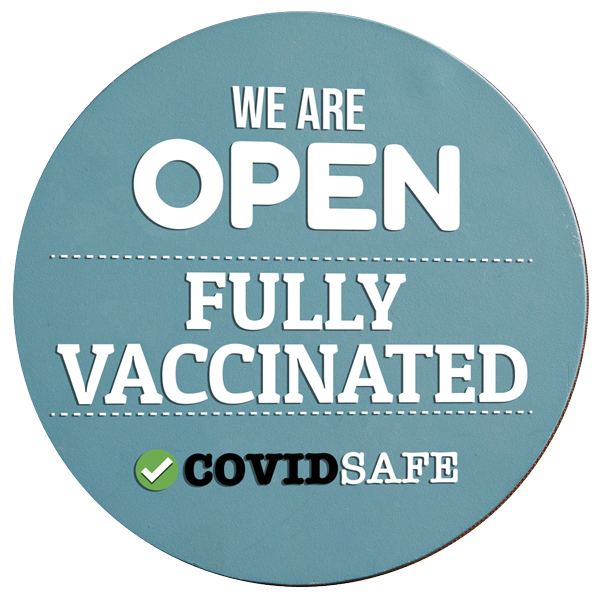By Amy Cooley

Perhaps you’ve seen the case of the chauffeur in Australia who has been called “patient zero” for the spread of the Delta variant in Sydney, which forced a two-week lockdown in June for the area. The country has been lagging behind the world in percentage of adult population vaccinated—only 4 percent in late June—due to lack of availability, but officials have been swift in imposing quarantines and lockdowns to stop the spread once a case is identified through contact tracing. The chauffeur, who is tested regularly for his job, received a positive result in mid-June. Since then, he has been publicly identified and regularly called out by officials and the media. He was unvaccinated and his actions have been called into question—and although he denies the claims, and conflicting reports have been published on whether he caused the spike, that’s not exactly the type of publicity you would want for your company or team.
 Reopening your doors brings with it several new questions, specifically related to COVID. These considerations range from what questions can I ask my employees about COVID to what I can require of them in relation to masking, testing, vaccination, and so on. You have a duty to provide a safe work environment for your employees. And your business relies on your “duty of care” and highest level of service to your clients.
Reopening your doors brings with it several new questions, specifically related to COVID. These considerations range from what questions can I ask my employees about COVID to what I can require of them in relation to masking, testing, vaccination, and so on. You have a duty to provide a safe work environment for your employees. And your business relies on your “duty of care” and highest level of service to your clients.
The answers are complex, involving matters of employee health and safety, privacy, and fair treatment. Not only that, but they are also evolving almost as quickly as the pandemic trajectory and scientific developments, including vaccines and the effectiveness of masking and social distancing.
Because the answers change, you may still be asking the same questions you had more than a year ago, along with some new ones.
Some good news—the majority of the federal guidance for employers related to COVID has been centralized in a resource published online by the EEOC here: US EEOC—What You Should Know About COVID-19 and ADA Rehabilitation Act and Other EEO Laws.
There is a lot of information here, but I am going to focus on the some of the newest guidance—related to vaccines and the workplace.
 The big question for employers is can I require my employees to get vaccinated against COVID?
The big question for employers is can I require my employees to get vaccinated against COVID?
The short answer is a qualified yes. Federal law does not prevent you from requiring your employees to be vaccinated if they are working in-person. However, reasonable accommodation and fair treatment standards still apply.
For example, under Title VII and the ADA, employers are obligated to provide reasonable accommodations (where possible) for those employees who have either a disability or a religious belief that prevents them from being vaccinated.
Additionally, since barriers to vaccination vary across different groups of people, a workplace vaccine requirement could put a greater burden on employees who fall into certain protected classes. This kind of “disparate impact” may be investigated by the EEOC as a discrimination claim.
Generally speaking, if you are going to implement a vaccine requirement, you need to be able to answer yes to these questions:
• Is there a legitimate business reason for the requirement?
• Is the rule fairly applied?
• Are reasonable accommodations made when requested?
Health and safety risks to other employees as well as clients are sound business reasons to require vaccines, and employee vaccine requirements have been upheld in the health care industry, for example. Keep in mind that your business depends on providing the best service to your clients and looking out for their health and safety.
What about reasonable accommodations?
If you do require your employees to be vaccinated, you will need to consider what kind of accommodations you would reasonably be able to make for those who decline based on disability or religious belief.
Of course, the first that comes to mind for many is the option to work remotely. That might be possible for a reservationist or dispatcher, but for your chauffeurs and fleet maintenance staff, that’s kind of a non-starter. So other accommodations include those COVID precautions that have become so familiar to us, like distancing, wearing protective equipment, and placing shields in your offices and vehicles. It is also acceptable to schedule a modified shift or offer a different assignment to reduce risk of exposure.
But ... just because you can mandate employee vaccinations, doesn’t necessarily mean you should. We are all aware of mixed feelings and varying levels of willingness regarding vaccination, so what about encouraging rather than mandating?
Many employers are choosing instead to encourage vaccination by offering incentives. Is this allowed?
Yes, you may both encourage and incentivize employees to be vaccinated. As long as the measures you take are not extreme enough to constitute coercion (i.e., putting undue pressure on employees to comply).
• Provide credible education about the vaccine? Yes.
• Offer a $25 or $50 gift card or service credit to those who show proof of vaccination? Probably OK.
• Charge a $100 fine to unvaccinated employees? Not a good idea.
• Restrict unvaccinated employees from use of facilities like a kitchen or breakroom? No way!
Ultimately, it is important to remember that EEOC, ADA, and Title VII requirements do NOT prevent you as an employer from following CDC and executive guidance at a federal, state, and local level. Your employees and your clients are entitled to an expectation of safety, and COVID is legally recognized as a significant health and safety risk.
As you are certainly aware, masking, social distancing, and other protective measures are frequently addressed by the CDC and other government agencies, including specific advice or requirements for certain types of transportation for both drivers and passengers.
Federal and state governments have made a major push for the US population to get vaccinated. If you consume any type of media (social, news, websites), then you’ve probably seen celebrities, politicians, or even companies urging eligible adults to get the jab. The Biden administration set a goal for 70 percent of adults to be vaccinated by July 4, but fell short by a few percentage points.
Meanwhile, numerous events, including sports and concerts, have a vaccine mandate or offer special perks for those who have been. Many colleges and universities have made it mandatory for students, faculty, and staff returning in the fall. Countless companies of all sizes have announced that they will require employees to be vaccinated, while some have even offered incentives to employees and customers. It’s clear that being COVID vaccinated is becoming the norm and the expectation to return to “normal.”
Whether you require, encourage, or remain neutral on the issue of employee vaccination, health and safety, along with regulatory compliance, must come first.
[CD0721]
*The guidance provided here is based on EEOC publications as of June 30, 2021 and does not constitute legal advice. As noted, this federal guidance is subject to change. Additionally, your state may offer guidance and policy that is stricter than the federal requirements. We recommend that you review both the federal link provided here and your state/local guidance or consult a professional before acting.
Amy Cooley is HR Administrator for The LMC Groups. She can be reached at amy@lmcpeople.com.

